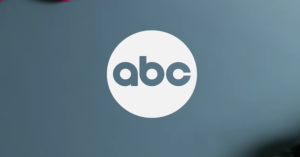Millions of Americans are unemployed and experiencing unprecedented economic struggles, yet the stock market remains virtually undisturbed. According to a report by Barron’s Magazine, the S&P 500 is approaching a new high point, and other signs indicate that the day-to-day struggles of Americans are not reflecting in the economy on paper. This phenomenon is difficult to describe, but it may not last much longer.
According to Barron’s, the indicators and warning signs that economists watch for have not changed much in the last few weeks, even as the need for a stimulus check grows direr. New unemployment claims fell, in some cases, while the relaxing of stay-at-home orders in some states drove up the profits of service industry businesses. While Americans who lost the unemployment enhancement of the CARES Act are struggling, others are now able to spend money that they couldn’t before.
Videos by PopCulture.com
“For the past two weeks, every important data point has beat estimates, dismissing the notion that the U.S. economic recovery was pausing following the spike in virus cases in June/July, and reinforcing the idea that the U.S. economy is indeed recovering from the Covid-19 declines of March and April,” wrote Tom Essaye of Sevens Report on Monday.
From the perspective of a stockbroker, these signs are promising, even if they are clearly not going to last. However, unemployment remains at a historic high, while GDP remains at a historic low.
Additionally, Bank of America economist Ethan Harris pointed out that the market as a whole was not recovering from a massive surge when the first stimulus check came out — because there never really was one. Harris cited data to suggest that Americans who were not in dire straits when their stimulus check came mostly put the money into savings.
“A big chunk of the money went from the government’s checking account to household checking accounts and stayed there,” he said. “People who needed the money spent it; people who didn’t saved it.”
These savings are cushioning the blow of the recession for many Americans and giving them some breathing room between their day-to-day needs and their debt.
Finally, Essaye suggested that economists are not too worried about the stimulus check, as they have come to expect delays like this from lawmakers. “As usual, Washington is waiting until the absolute last second to do what everyone assumes they will do,” he wrote.
The United States Senate remains on a month-long recess, meaning that no further progress on the stimulus check is likely until Labor Day. At the time of this writing, just over 10 percent of American workers are unemployed, and coronavirus numbers are still on the rise.








